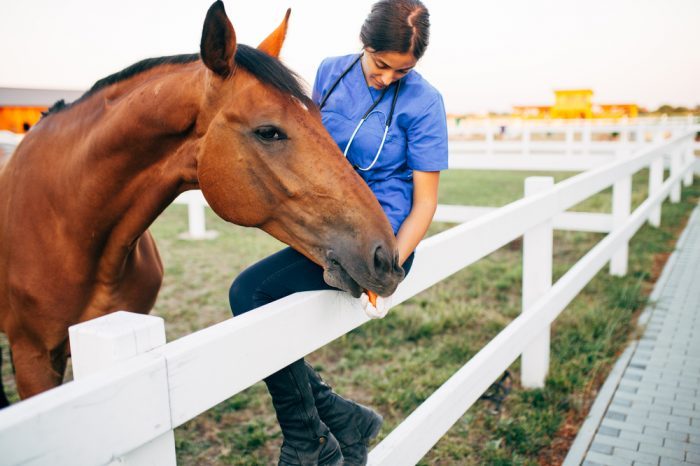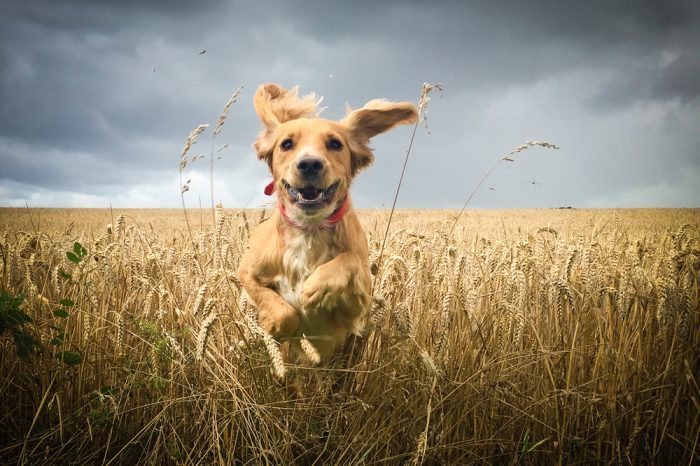Can I give CBD to my dog? The answer is yes, but proceed with caution.
The limited scientific evidence available on CBD for other animals suggests that Cannabidiol may be beneficial for dogs in treating symptoms of anxiety or pain. But, many dog owners have questions around which cannabinoids and terpenes to avoid, proper dosing, and methods of administration. Here’s what every pet owner should consider about research into, “Can I give CBD to my Dog?”
1) THC is Dangerous for Dogs so no Sharing Bud
Dogs getting their paws on cannabis is a much more common occurrence than many might think. When owners carelessly leave their stash lying around, dogs are inclined to stick their nose in and chew it down. As a result, many owners unintentionally give their pets toxic doses of THC. People frequently wonder how there can even be THC in raw bud. This is due to the nature of degradation of cannabis over time. At all points in time, exposure to elements, like heat and light, will cause THCa to convert to THC and then onto CBN.
Few pet owners are aware of how potentially dangerous THC is for dogs. A study published in the Canadian Veterinary Journal (2016), detailed how the endocannabinoid systems of canines interact with exogenous cannabinoids. Researchers found that dogs have, “a higher number of cannabinoid receptors in the brain compared with humans.” And it’s for this reason that seemingly benign amounts of THC can be extremely intoxicating for dogs.
Signs of THC intoxication in dogs include: vomiting, difficulty balancing, diarrhea, and spacing out. In such cases, an emergency trip to the vet is the likely outcome. While your pet is unlikely to reach lethal toxicity gnawing on cannabis bud, their respiration rate can decline to such a point that they are at risk of reduced oxygen flow to vital organs. Your doggo could also choke on vomit if they pass out.
Ultimately, anyone administering cannabis to their dog should do so with CBD and never THC, and always under the guidance of a veterinarian. Proper dosing of CBD involves weight of the dog as well as consideration of the needs of the condition. More on that in a moment.
THCa: Not Toxic but Exercise Caution
While THC is toxic to dogs, its acid form is not. This is THCa and is abundant in raw cannabis. A study published in the book Nutraceuticals in Veterinary Medicine (2019), established that dogs may benefit from the use of the non-decarboxylated, non-intoxicating THCa. This compound helps “modulate immune function,” and can reduce nausea and vomiting associated with chemotherapy. Researchers commented that although the THCa does not bind to CB1 receptors in the brain as “it is regulated through many other entourage non-cannabinoid receptor-mediated pathways.”
Home growers can obtain ample amounts of THCa via plant leaves. For humans, juicing raw cannabis also offers potentially tremendous medicinal benefit, without the concern of psychoactivity.
However, a Word Of Caution: THCa degrades into THC. It degrades surprisingly quickly after exposure to heat, UV light, or oxygen. In fact, even when kept in refrigerator temperatures (4°C) for study, some of the THCa will decarboxylate and turn into THC. Currently, there is no way to totally avoid exposure to THC, and no solid way to map out the rate of degradation.

2) Hemp is Suitable as a Safe Source of CBD
Not everyone lives in an area where medicinal cannabis is legal and freely available. In such jurisdictions, a viable alternative often exists in the form of hemp. Within the U.S., federal law ensures that hemp products sold on the market contain no more than 0.3 percent THC.
The low levels of THC present in hemp make it the ideal source for any cannabis-derived medicine for dogs. It often provides a great starting point for calculating the dose. And, it removes the danger THC poses to pets.
While hemp lacks the high amounts of THC, it still contains a substantial amount of minor cannabinoids and terpenes, all of which illicit further medicinal benefit.
Accessing CBD from full spectrum hemp is preferred over a CBD isolate or hemp seed oil. This is because there are many other compounds that work in concert, via Entourage Effect, to potentially benefit the health of your dog.
3) CBD Helps Treat Common Canine Illnesses
We live in an ever-more toxic world, and it’s not just humans who develop serious diseases. Dogs, too, can develop a range of illnesses including cancers, joint pain, arthritis, and skin allergies, among others.
A study published in BMC Veterinary Research (2017), established several causes of cancers among dogs. Researchers noted that the causes are wide and varied, including everything from secondhand smoke, exposure to lawns treated with herbicides and insecticides, induced hormonal imbalances in spayed females, overexposure to UV sunlight, poor diet, and excess weight.
Dogs suffer tremendously with such afflictions. Unfortunately, these often manifest as a lack of appetite and severe pain. Dogs also develop aches and pain as they age —something that is more pronounced in larger purebred dogs, where problems with joints are a common source of pain. As dogs age, CBD may be considered to help with the symptoms of arthritis, pain, anxiety, stress, or seizures.

4) Administrating CBD to Dogs
While many dogs are surprisingly smart, they’re never going to learn how to place a dropper under their tongue or roll a joint. This means that the most reliable methods of consistent dosing will be through treats. It is very important to consider, however, that your dog can’t necessarily share your CBD edibles. Always make sure the ingredients are suitable for canines. A small example of ingredients that are not approved for dogs include xylitol, chocolate, and caffeine. It’s best to stick to a pet-specific CBD product.
Oral Ingestion
Many commercially available edible solutions exist on the market for dogs. In edible form, it’s easy to add them to a pet’s food or administer them as treats. If using a tincture, then always go with oil-based tinctures, as alcohol is not suitable for dogs. CBD tincture can be added to food if your dog eats the whole serving in one go.
Topical Application
Furthermore, dogs have endocannabinoid receptors in their skin, and this provides another effective way by which to administer cannabis. Any dogs with skin injuries, forms of skin cancer, and joint/muscle aches could benefit significantly from the localized application.
Creams, oils, and salves all work well, and numerous commercially available solutions tailored specifically for dogs exist.
5) Proper Dosing of CBD for Dogs
Choosing the correct dose for a pet is difficult in the initial stages. Dogs aren’t capable of providing direct feedback on the effects of the medicine, so pet owners must use their intuitive judgment in conjunction with advice from the veterinarian.
Larger dogs will require a larger dose as CBD dosing is based on body mass, but pet owners should start on the low end initially. Overall, it’s best to talk to a veterinarian about where to start and how to titrate up to an ideal therapeutic dose.
Again, as THC is highly intoxicating to dogs, extra care is essential to ensure that its presence remains minimal. It’s also important to be especially wary of any form of cannabis medication bought on the black market. Since certain terpenes and cannabinoids are toxic to dogs, it’s simply not worth the risk of exposure from improper labeling. Always buy from a reputable source because a dog’s life may depend on it.

Are You Meeting Your Dog’s Needs?
While most dog owners dearly love their canine companions, many still lead a busy life. Between raising a family and holding down a full-time job, many find it difficult to make the time required to give a dog its most basic needs – sufficient exercise and attention.
It’s important to note that larger breeds require more exercise, and any dog that doesn’t get enough will exhibit unwanted behaviours that can be easily confused for anxiety. Before asking, “Can I give CBD to my dog?” ensure he or she is getting enough physical activity, mental stimulation, and socialization with the family and with other dogs.





